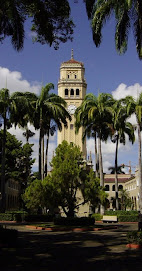The sponsors offer support for the Science Education Partnership Awards (SEPA) program whose goals are to foster the development of novel programs to improve K-12 and the general public's understanding of the clinical trial process as well as the health science advances stemming from National Institutes of Health (NIH) funded clinical and basic research. The SEPA program supports the creation of innovative partnerships between biomedical and clinical researchers and K-12 teachers and schools, museum and science center educators, media experts, and other interested educational organizations. Particular importance will be given to SEPA applications that target K-12 science educational topics that may not be addressed by existing science curricula, community-based or media activities. This program will use
the NIH Research Education (R25) grant mechanism.
Deadline(s): 10/29/2006
Funding Limit: $250,000 YEAR
Duration: 5 YEAR(s)
OBJECTIVES:
This funding opportunity announcement (FOA) solicits applications from applicant organizations that propose creative and innovative research education programs to increase the public's understanding of medical research and deliver information about healthy living and
career opportunities in science to children and the general public. Examples of SEPA activities include:
Developing, implementing and evaluating content-rich, inquiry-based science education programs, including innovative curricula, designed to enhance science teaching and learning with populations of underrepresented minority, underserved, rural and other disadvantaged
students.
Increasing the interest or participation of underrepresented groups in basic and clinical research career pathways.
Developing and implementing professional development for in-depth school or summer K-12 teacher enhancement in scientific content with appropriate pedagogical methods that are aligned with applicable professional, national, state and local standards.
Developing science center and museum exhibits, research opportunities, traveling exhibits, programs and public outreach activities that excite, engage and educate the general public on
NIH-funded basic and clinical research.
Designing appropriate evaluation plans to assess efficacy and impact for K-12 and museum/science center-based curriculum development projects, teacher enhancement efforts, exhibits and informal science education programs.
Educating the K-12 community and the general public on topical issues such as stem cells and regenerative medicine, ethics of research and medicine, the clinical trials process and patient
safeguards.
Exploring innovative approaches, including applications of technology and assessment tools, to strengthen public or K-12 understanding of science and the nature of science.
miércoles, septiembre 20, 2006
Suscribirse a:
Enviar comentarios (Atom)

No hay comentarios:
Publicar un comentario